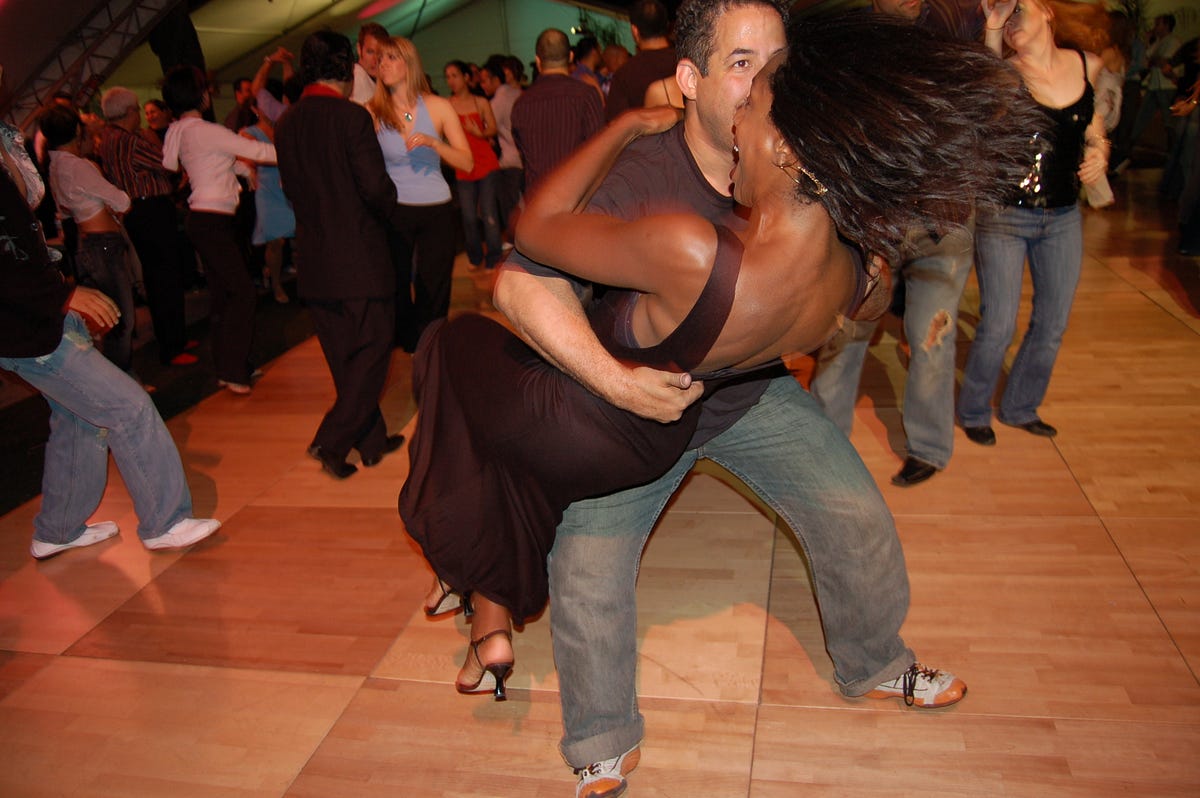Everything about Dance Fridays
Wiki Article
Not known Incorrect Statements About Dance Fridays
Table of ContentsSome Known Details About Dance Fridays Getting My Dance Fridays To Work9 Easy Facts About Dance Fridays ExplainedIndicators on Dance Fridays You Should Know
Dancing form Salsa training in Ecuador Salsa is a Latin dance, related to the songs category of the same name, which was very first popularized in the United States in the 1960s in New York City. Salsa is a mixture of Cuban dances, such as mambo, pachanga, and rumba, in addition to American dancings such as swing and tap. As American dances such as swing and tap.
The fundamental Salsa dance rhythm contains taking 3 actions for each four beats of songs. Salsa professional dancers can also break apart to dance solo, referred to as "lusters". The 2 primary designs of salsa are direct and round. In straight salsa, professional dancers remain in their "port", switching over areas from one side of the port to the various other, similar to West Coastline Swing New Yorkstyle salsa and LA-style salsa are both danced by doing this.

How Dance Fridays can Save You Time, Stress, and Money.
Salsa dancing is a global dancing that can be located in the majority of cosmopolitan cities worldwide - https://salsacrazysf1.blog.ss-blog.jp/. Events are held yearly, usually called a Salsa Congress, in various host cities aimed to bring in a selection of salsa dancers from other cities and nations - salsa crazy. The occasions bring professional dancers with each other to share their passion for the dance, develop community, and share relocations and ideasVideo showing salsa dancing fundamentals Over the years, lots of various styles of salsa dancing have actually evolved around the globe. Including other dance designing techniques into salsa dancing has actually likewise ended up being typical, with professional dancers of one design integrating styles and movements of others to produce brand-new fusions of dancing styles.

Among the most significant figures in New York style salsa is Eddie Torres - salsa crazy (understood as "the Mambo King"), who is credited with assisting to define the on 2 salsa timing (based on mambo) and helping to popularize it by teaching it in dancing workshops in New York and with very early educational tapes
Dance Fridays for Beginners
LA style salsa is danced in a line or "port" with dancers exchanging placements throughout the dancing, unlike Cuban salsa which is danced in a much more round fashion.In this pattern, the leader actions forward on 1, steps to the right on 2-3 while transforming 90 levels counter-clockwise (encountering to the left), leaving the slot open. https://www.anyflip.com/homepage/detcl. The fan after that steps straight onward on 5-6 and turns on 78, while the leader makes an additional 90 degrees counter-clockwise and slightly onward, coming back into the port
The "Vazquez Brothers" (Luis Vazquez, Francisco Vazquez, and Johnny Vazquez) are attributed for the very early advancement and development of LA Style. Luiz Vazquez was the co-founder of Los Angeles's initial salsa dance team, Salsa Brava.
Later on dancers such as Alex Da Silva, Christian Oviedo, and Liz Lira are also credited with creating the LA design of dancing as we understand it today. [] In Cuba, a prominent dance referred to as Casino was marketed as Cuban-style salsa or Salsa Cubana abroad to distinguish it from other salsa styles when the name was popularized internationally in the 1970s.
All About Dance Fridays
basics The name Online casino is stemmed from the Spanish term for the dance halls, "Casinos Deportivos" where much social dancing was done among the better-off, white Cubans during the mid-20th century and onward. Historically, Gambling establishment traces its beginning as a companion dancing from Cuban Son, Cha Cha Cha, Danzn and Guaracha.This suggests that no step is handled the very first and 5th beats in each clave pattern and the 4th and eighth beat are highlighted. This way, rather than complying with a beat, the professional dancers themselves add in their activity, to the polyrhythmic pattern of the music. At the exact same time, it is often danced "a tiempo", although both "on3" (originally) and "on1" (nowadays).
Report this wiki page